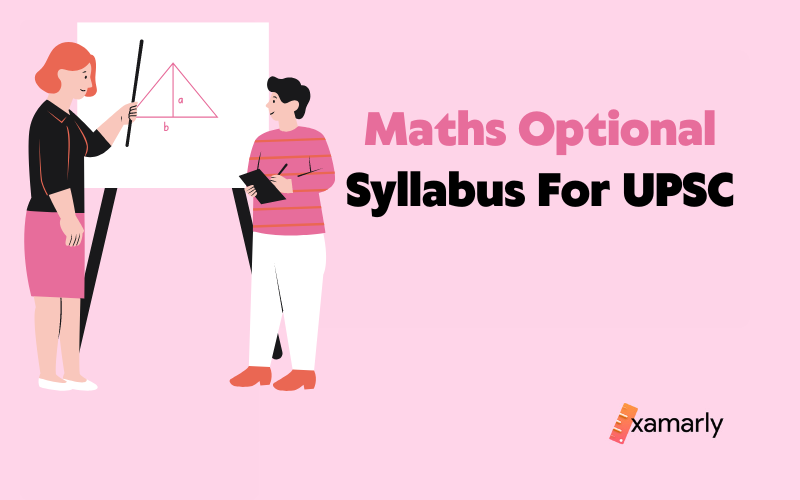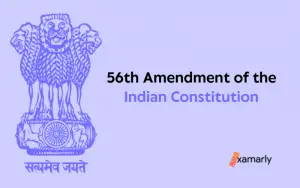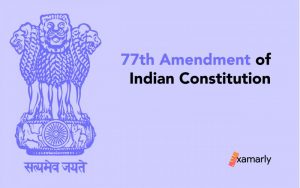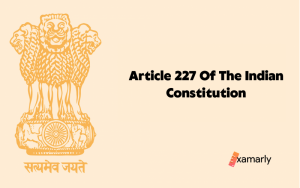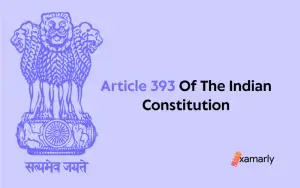Are you looking for more information to prepare for the maths optional syllabus for UPSC?
Mathematics is one of the most challenging optional subjects and is a popular choice among students. However, it can also be a great choice if students are highly passionate about maths.
Maths optional syllabus for UPSC is static by nature. Therefore applicants who took math in their undergraduate or postgraduate will be able to quickly and simply complete the courses. Candidates simply need to review the theory and formulas since math is unrelated to current events.
The problems from the UPSC Maths Optional Syllabus for UPSC have a definitive solution, making it simple for students to achieve high marks.
This article deserves to take your attention as it orbits around the Mathematics optional syllabus for UPSC.
- Maths Optional Syllabus For UPSC
- Mathematics Optional Syllabus For UPSC
- Paper I
- Linear Algebra
- Manipulating Matrices
- Calcus
- Analytic Geometry
- Ordinary Differential Equations
- Dynamics & Statics
- Vector Analysis
- UPSC Maths Optional Detailed Syllabus
- Paper II
- Algebra
- Real Analysis
- Complex Analysis
- Linear Programming
- Partial differential equations
- Numerical Analysis
- Computer Programming
- Mechanics and Fluid Dynamics
- UPSC Maths Syllabus Preparation
- Booklist
- Conclusion
- FAQs On UPSC Mathematics Optional Syllabus
- What is the Maths Optional Syllabus for UPSC?
- What are the topics covered in the Maths Optional Syllabus for UPSC?
- How many papers are there in the Maths Optional Syllabus for UPSC?
- What is the duration of the Maths Optional paper in UPSC?
- How many marks is the Maths Optional paper in UPSC?
- Is the Maths Optional Syllabus for UPSC difficult?
- What is an efficient method to prepare for the Maths Optional paper in UPSC?
- Are there any coaching institutes that provide coaching for Maths Optional in UPSC?
- Is it necessary to have a background in Maths to take Maths Optional in UPSC?
- How much time should one dedicate to prepare for the Maths Optional paper in UPSC?
Maths Optional Syllabus For UPSC
Mathematics is one of the optional subjects. It comprises two papers in the Civil Services Mains Exam administered by the Union Public Service Commission (UPSC) (Paper I and Paper II).
Each of the IAS Mathematics Optional papers is worth 250 points out of a possible 500. IAS Exam Mains consists of 9 papers.
The UPSC CSE maths optional syllabus is detailed in the article that follows. Aspirants can refer to the article in the following section to understand the UPSC Mains pattern.
Mathematics Optional Syllabus For UPSC
Paper I
For Paper 1 of the civil service exam, the math optional syllabus for paper is as follows:
Linear Algebra
One learns about vector spaces over R and C. This includes concepts such as linear dependence and independence, subspaces, bases, and dimension.
Linear transformations are also covered, which involves determining the rank and nullity of the transformation, as well as the matrix representation of it.
The subject also delves into linear transformations, which involves understanding the rank and nullity of the transformation and the matrix representation of it.
Manipulating Matrices
Learn how to add, subtract, and multiply matrices using row and column reduction, congruence, and similarity methods, and determine the rank of a matrix.
Discover how to find the inverse of a matrix and solve a system of linear equations. Explore the concepts of eigenvalues and eigenvectors, characteristic polynomials, and the Cayley-Hamilton theorem.
Learn about various matrix types including symmetric, skew-symmetric, Hermitian, skew-Hermitian, orthogonal, and unitary matrices and their respective eigenvalues.
Calcus
Involves real numbers, functions of a real variable, limits, continuity, differentiability, mean value theorem, Taylor’s theorem with remainders, indeterminate forms, maxima and minima, asymptotes, and curve tracing.
Additionally, the subject covers functions of two or three variables, including topics such as limits, continuity, partial derivatives, maxima and minima, Lagrange’s method of multipliers, and Jacobian.
Calculus encompasses Riemann’s definition of,
- Definite integrals
- Indefinite integrals
- Infinite and improper integrals
- Double and triple integrals
- Techniques for their evaluation
- Additionally, it includes the calculation of areas, surfaces, and volumes
Analytic Geometry
This topic covers the use of Cartesian and polar coordinates in three-dimensional space, as well as second-degree equations in three variables, and their reduction to canonical forms.
Additionally, it includes the study of straight lines, such as finding the shortest distance between two skew lines.
The subject also involves the properties of various three-dimensional shapes, including planes, spheres, cones, cylinders, paraboloids, ellipsoids, and hyperboloids of one and two sheets.
Ordinary Differential Equations
- Formulation of differential equations
- Equations of the first-order and first degree
- Integrating factor
- Orthogonal trajectory
- Equations of first order but not of the first degree
- Clairaut’s equation
- Singular solution
Linear equations of the second and higher orders that have constant coefficients are studied in this topic. It covers complementary functions, particular integrals, and general solutions.
The topic covers second-order linear equations with varying coefficients and the Euler-Cauchy equation. It also includes finding the complete solution using the method of variation of parameters when one solution is known.
The subject of study is Laplace transforms and inverse Laplace transforms along with their properties.
The study also covers Laplace transforms of elementary functions.
Dynamics & Statics
Topics covered under mechanics include rectilinear motion, simple harmonic motion, motion in a plane, projectiles, and constrained motion. Additionally, the subject covers work and energy, conservation of energy, Kepler’s laws, and orbits under central forces.
This subject covers various topics such as the equilibrium of a system of particles, work and potential energy, friction, the common catenary, the principle of virtual work, and equilibrium of forces in three dimensions.
Vector Analysis
Topics covered in this subject include scalar and vector fields, differentiation of vector field of a scalar variable, gradient, divergence, and curl in Cartesian and cylindrical coordinates, higher-order derivatives, vector identities, and vector equations.
This subject includes applications to geometry such as curves in space, curvature, and torsion, as well as the use of Serret-Frenet’s formulae.
UPSC Maths Optional Detailed Syllabus
Paper II
Algebra
The following concepts and theorems in group theory are discussed: Groups, subgroups, cyclic groups, cosets, Lagrange’s theorem, normal subgroups, quotient groups, homomorphisms, basic isomorphism theorems, permutation groups, and Cayley’s theorem.
Real Analysis
The subject covers the real number system as an ordered field with the least upper bound property, including sequences, the limit of a sequence, the Cauchy sequence, and the completeness of the real line.
It also includes series and their convergence, absolute and conditional convergence of series of real and complex terms, and rearrangement of series.
- Riemann integral
- Improper integrals
- Fundamental theorems of integral calculus
This course includes the subjects of uniform convergence, continuity, differentiability, and integrability concerning sequences and series of functions.
It also includes partial derivatives of functions of two or three variables, as well as maxima and minima.
Complex Analysis
- This subject includes topics such as analytic functions
- Cauchy-Riemann equations
- Cauchy’s theorem
- Cauchy’s integral formula
- Power series representation of analytic functions
- Taylor’s series
- Singularities
- Laurent’s series
- was Cauchy’s residue theorem, and contour integration
Linear Programming
This subject covers linear programming problems, including basic solutions, basic feasible solutions, and optimal solutions.
It also covers methods of solution such as the graphical method and simplex method, as well as duality. Transportation and assignment problems.
Partial differential equations
This subject covers families of surfaces in three dimensions and the formulation of partial differential equations.
It includes the solution of quasilinear partial differential equations of the first order using Cauchy’s method of characteristics, as well as linear partial differential equations of the second order with constant coefficients and their canonical form.
Additionally, it covers the equation of a vibrating string, the heat equation, the Laplace equation, and their solutions.
Numerical Analysis
The subject covers various numerical methods, including the solution of algebraic and transcendental equations of one variable using bisection, Regula-Falsi, and Newton-Raphson methods.
It also covers the solution of a system of linear equations using Gaussian elimination and Gauss-Jordan (direct) methods, as well as Gauss-Seidel (iterative) methods.
- Trapezoidal rule
- Simpson’s rules
- Gaussian quadrature formula
Numerical solution of ordinary differential equations:
Euler and Runge Kutta-methods.
Computer Programming
- Binary system
- Arithmetic and logical operations on numbers
- Octal and Hexadecimal systems
- Conversion to and from decimal systems
- Algebra of binary numbers
- Elements of computer systems and the concept of memory
- Basic logic gates and truth tables, Boolean algebra, normal forms.
This topic covers the representation of,
- Various types of numbers including unsigned integers
- Signed integers
- Real numbers
- Double-precision real numbers
- Long integers
- Algorithms and flow charts
Mechanics and Fluid Dynamics
Generalized coordinates; D’ Alembert’s principle and Lagrange’s equations
Hamilton equations; Moment of inertia; Motion of rigid bodies in two dimensions.
- Equation of continuity
- Euler’s equation of motion for inviscid flow
- Stream-lines, the path of a particle; Potential flow
- Two-dimensional and axisymmetric motion
- Sources and sinks, vortex motion
- Navier-Stokes equation for a viscous fluid
Also Read: How to Prepare For CSAT UPSC?
UPSC Maths Syllabus Preparation
Students should be interested in mathematics and eager to study all aspects. Some of the preparation tips are mentioned below. Follow it wisely to prepare the maths syllabus for UPSC optional wisely and effectively.
- It is essential to have a comprehensive understanding
- To increase your speed and accuracy, it is essential to practice a significant number of questions. By a significant number of questions, we imply that you should practice until you are perfect.
- It is also beneficial to take up revision tests for maths or to improve your knowledge of the concepts/theorems.
Maths optional UPSC syllabus is less voluminous than that of other subjects. It is not as opinion-based and does not involve a lot of current affairs.
This means that students can focus on studying the course material and revision. By doing this, they can maximize their chances of scoring high marks.
Also Read: How To Prepare Mathematics Optional For UPSC in 7 easy steps.
Booklist
For those who selected math as an option, the UPSC Maths Optional Books are an essential component of UPSC Mains preparation.
Math is a topic that scores well since every question has an absolute solution. Candidates must set aside time to train with the best UPSC Maths Optional Books for a subject like mathematics. The more you practice, the easier it will be to pass math optional.
The majority of candidates for the B. Tech and B.Sc. in Mathematics select this as an elective. However, for UPSC Mains preparation, beginners must pick the top math books.
The market is flooded with books for the UPSC Maths Optional, making it difficult for candidates to choose the best one.
Because of this, we have put together a selection of the best math books for UPSC exams that will undoubtedly help you with your preparation and give you a firm knowledge of the subject.
Books For Paper I
You can cover Maths UPSC optional syllabus from the following books enlisted below:
- Analytical Solid Geometry by Shanti Narayan and P K Mittal
- Mathematical Analysis by S C Malik and Savita Arora
- Ordinary and Partial Differential Equations by M D Raisinghania
- Solid Geometry by P N Chatterjee
- Linear Algebra by Hoffman and Kunze
- Ordinary and Partial Differential Equations by M D Raisinghania
- Schaum Series by Murray R. Spiegel
Books For Paper II
Consider using the following books to complete the UPSC optional subject mathematics syllabus of Paper II:
- Digital Logic and Computer Design by M. Morris Mano
- Contemporary Abstract Algebra by Joseph Gallian
- Linear Programming and Game Theory by Lakshmi Shree Bandopadhyay
- Advanced Differential Equations by M D Raisinghania
- Schaum Series by Speigel, Seymour Lipschutz, Schiller, Spellman
Conclusion
The UPSC maths optional exam is an exam that requires a lot of study plan, practice, and execution.
Taking up maths as an optional subject can help students sharpen their analytical and problem-solving skills.
Students need to focus on key concepts and practice as much as they can. A good strategy to cover Maths optional syllabus for UPSC is to:
- Brush your existing knowledge
- Practice wisely
- Attempt mock test
- Solve previous years’ question papers
FAQs On UPSC Mathematics Optional Syllabus
What is the Maths Optional Syllabus for UPSC?
The Maths Optional Syllabus for UPSC is a list of topics that candidates can choose to study for the Mathematics optional paper in the UPSC Civil Services Examination.
What are the topics covered in the Maths Optional Syllabus for UPSC?
The Maths Optional Syllabus for UPSC includes topics such as algebra, calculus, linear programming, geometry, number theory, and statistics.
How many papers are there in the Maths Optional Syllabus for UPSC?
There is only one paper in the Maths Optional Syllabus for UPSC.
What is the duration of the Maths Optional paper in UPSC?
The duration of the Maths Optional paper in UPSC is 3 hours.
How many marks is the Maths Optional paper in UPSC?
The Maths Optional paper in UPSC is of 250 marks.
Is the Maths Optional Syllabus for UPSC difficult?
The Maths Optional Syllabus for UPSC is considered to be one of the most challenging optional subjects due to the depth of the topics covered.
What is an efficient method to prepare for the Maths Optional paper in UPSC?
The best way to prepare for the Maths Optional paper in UPSC is to start early, practice regularly, and solve as many previous year question papers as possible.
Are there any coaching institutes that provide coaching for Maths Optional in UPSC?
Yes, there are many coaching institutes that provide coaching for Maths Optional in UPSC.
Is it necessary to have a background in Maths to take Maths Optional in UPSC?
While it is not mandatory to have a background in Maths, it is recommended as the topics covered are quite advanced.
How much time should one dedicate to prepare for the Maths Optional paper in UPSC?
One should ideally dedicate 6-8 months to prepare for the Maths Optional paper in UPSC.


